Cumin Benefits: 5 Science-Backed Ways It Aids Digestion & More
Give your body the goodness of aromatic seeds while considering the disadvantages, too.
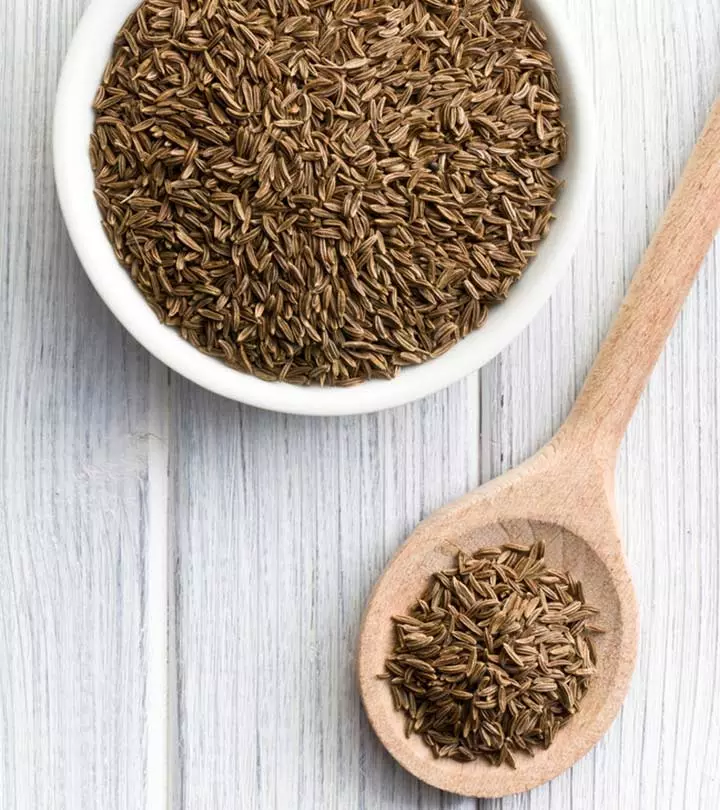
Image: Shutterstock
Cumin (jeera) is an important ingredient in the seasoning or tempering of foods. It is commonly used across cuisines worldwide due to its medicinal value.
Folk and traditional medicines bet big on cumin to improve digestion, boost the immune system, and prevent/treat inflammation (1). But what does science say? This article talks about everything you need to know about cumin, its nutritional facts, benefits, potential side effects, and the different ways to consume it. Swipe up
 Know Your Ingredient: Cumin
Know Your Ingredient: CuminWhat Is It?
A spice is from a flowering plant of the Apiaceae family, native to the eastern Mediterranean and southwest Asia.
What Are Its Benefits?
Aids digestion, weight loss, cholesterol control, diabetes management, and inflammation.
Who Can Use It?
Safe for moderate consumption for everyone.
How Often?
Can be used in cooking every day in small amounts.
Caution
It can interfere with major classes of drugs, leading to mild to severe allergic reactions.
In This Article
Cumin Seeds: In Detail
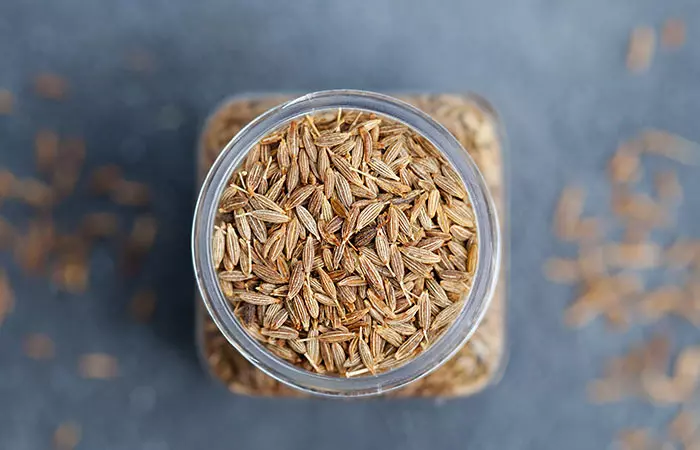
The cumin (Cuminum cyminum) plant belongs to the Apiaceae family. The seeds of this plant are a popular and distinctly fragrant culinary spice. Cumin is one of the earliest crops to be cultivated in Asia, Europe, and Africa (1).
It is of various types, but the most common varieties include black, white, and brown cumin.
- Black cumin seeds, sometimes also referred to as kalonji or Nigella sativa, have a very different appearance from their cousin. They are thinner and smaller than most of the others, and they are as dark as charcoal. Black cumin tastes sweet and citrusy with a hint of bitterness, similar to the taste of oregano, black pepper, and onions. Fennel seeds are occasionally used in place of black cumin.
- White cumin is light brown in appearance and offers a warm, earthy flavor with bitter undertones and is also used in many Indian curries and stews.
- Brown cumin seeds are larger and fatter than black cumin seeds. The seeds, which have a warm, earthy, and peppery flavor, can be used to flavor grains, legumes, root vegetables, and other foods even when they are powdered. They are popularly used in Indian, North African, Turkish, and Mexican cuisines.
The seeds of this plant have been used in traditional medicine for treating digestive, lung, and liver disorders. Cumin seeds are now integral in folk medicine across Northern Europe to the Mediterranean regions, Russia, Indonesia, Iran, and North America (1).
Cumin seeds are potent carminative, stimulant, antiseptic, and anti-hypertensive agents. These seeds are rich in essential oils, oleoresins, tannins, sesquiterpenes, etc. (1), (2).
 Did You Know?
Did You Know?But what good do these active components do to your health? Move on to the next section for the answer(s).
Key Takeaways
- Cumin seeds are a boon for digestion; they alleviate gas and bloating.
- The seeds have anti-inflammatory properties that help eliminate the complications of diabetes.
- You can add them to various dishes, including soups, stews, curries, and more.
- One of the most noticeable symptoms of excessive cumin consumption is negative drug interactions.
What Are The Benefits Of Cumin Seeds?
Cumin seeds or jeera benefits overall health if included in the diet. These seeds are an excellent digestive aid. They reduce bloating and gas. Drinking cumin water might help you lose body weight. These seeds can maintain blood cholesterol levels too.
1. Aid Digestion
Traditional medicine vouches for the carminative property of cumin seeds. It uses ginger, celery seed, thyme, anise, and fennel, along with cumin to relieve flatulence and bloating (3).
These seeds can stimulate the liver to secrete bile rich in bile acids. Bile acids help in effective fat digestion and absorption. Due to the anti-inflammatory and analgesic (painkilling) effects, cumin seeds can control abdominal pain and spasms in patients with irritable bowel syndrome (IBS) (4), (5).
Research shows that cumin can also prevent gastrointestinal complications after Cesarean section in pregnant women. It does so by decreasing the colicky pains, heartburn, and delayed gas passage (5).
2. Promote Weight Loss

Obesity is linked to cardiovascular diseases, diabetes, and osteoarthritisi A subtype of arthritis, a joint disease where the cushioning cartilage between the joints breaks down due to old age or excess use. . Exercise and suitable diet plans may accelerate the weight loss process. Supporting herbal medicine has shown positive results in this case. Cumin is a traditional remedy for weight loss (6).
Consuming cumin and lime may reduce appetite and increase lipolysisi The process of lipid breakdown where lipid contents are broken down into fatty acids and glycerols. . A clinical study revealed that cumin-lime administration for 8 weeks reduced the BMI (body mass index) and total cholesterol levels in the subjects (6).
Eating cumin powder (about 3 g/day) with yogurt post meals for 3 months reduced the waist circumference in obese women. It increased HDL levels and cut down the fat mass (7).
Many people also drink jeera water for weight loss. Simli, a skincare and makeup blogger, opens up about her weight loss journey, crediting it to drinking cumin water. She reveals, “…I don’t get much time to workout, I drink an awesome drink everyday once in the morning and once in the evening to lose and control my body weight…. I am quite sure that all of you must have heard that cumin seed which [is] also known as Jeera helps to lose weight, my slim down weight loss drink’s main ingredient is cumin seeds (i).”
3. Possess Anti-Inflammatory Properties
Cumin seeds contain nearly 3-4% of the essential oil. Cumin essential oil is an anti-inflammatory, antioxidant, and anti-allergic agent. It has active phytochemicals that bring about these effects.
Cumin seed oil inhibits the production of anti-inflammatory compounds, including interleukins (IL-1 and IL-6), tumor necrosis factor (TNF-α), and nitric oxide (NO). This oil also prevents the activation of immune system cells involved in inflammation (8).
Hence, cumin is often added to the anti-inflammatory diet (AID) regimens. Along with spices like turmeric, ginger, rosemary, clove, etc., cumin seeds can relieve several inflammatory disorders (9).
4. Control Cholesterol Levels
The dried seeds of cumin have flavonoids with antioxidant capacity. They inhibit lipid peroxidation, which, in turn, causes a dip in oxidized low-density lipoprotein (ox-LDL) levels. The accumulation of ox-LDL is linked to atherosclerosisi A medical condition caused by a build-up of plaque in or on the artery walls, resulting in blockage of blood flow. and coronary heart diseasei A cardiovascular disease where the arteries are blocked. by plaque build-up, causing obstruction in the flow and circulation of blood. (10).
Cumin contains cuminaldehyde and flavonoids that lower the levels of ox-LDL. The active components, along with manganese and zinc, activate your body’s antioxidant enzymes (10).
These enzymes (like superoxide dismutase, catalase, etc.) scavenge free radicals that trigger lipid peroxidation. These effects extend to protect you from diabetes and cardiovascular diseases (10).
5. Help Manage Diabetes
Rat studies demonstrate the antidiabetic effect of cumin. The cumin flavonoids lower blood glucose levels, thanks to their antioxidant property. The free radical-scavenging effect was more pronounced in individuals with diabetes than the control rats (11).
Administering cumin extracts to those with diabetes type II may decrease the fasting blood sugar and serum insulin levels. Researchers also report a drop in the levels of glycosylated hemoglobin, which is a pathological indicator for diabetes (12).
According to a report released by the National Institute of Diabetes and Digestive and Kidney Diseases, an aggregate of 37.3 million (About 11.3%) people in the United States had diabetes in 2019. This includes 283,000 children and adolescents below or up to the age of 20.
Due to the anti-inflammatory activity, cumin seeds or their extracts mitigate the complications of diabetes. Also, green cumin was found to have stronger antidiabetic properties than the black variant (11), (12).
Cumin Cures!
– Cumin oil has analgesic and anti-nociceptivei A medical process that helps control or reduce sensitivity to pain by blocking sensory neurons from detecting the pain. properties. It can relieve pain and spasms by acting on the central nervous system (CNS).
– This oil can control blood clotting/platelet aggregation, and at the same time, boost hemoglobin levels (1).
– Cumin seeds have potent antimicrobial activity. Cuminaldehyde inhibits the growth of several bacteria, fungi, and yeast species (1).
Nutritional Profile Of Cumin Seeds
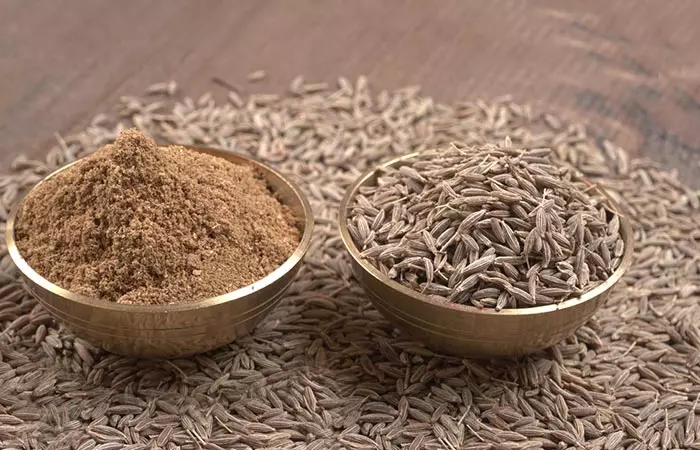
| Nutrient | Unit | 1 tsp, whole or 2.1g |
|---|---|---|
| Proximates | ||
| Water | g | 0.17 |
| Energy | kcal | 8 |
| Protein | g | 0.47 |
| Carbohydrate, by difference | g | 0.93 |
| Fiber, total dietary | g | 0.2 |
| Sugars, total | g | 0.05 |
| Minerals | ||
| Calcium, Ca | mg | 20 |
| Iron, Fe | mg | 1.39 |
| Magnesium, Mg | mg | 8 |
| Phosphorus, P | mg | 10 |
| Potassium, K | mg | 38 |
| Sodium, Na | mg | 4 |
| Zinc, Zn | mg | 0.1 |
| Vitamins | ||
| Vitamin C, total ascorbic acid | mg | 0.2 |
| Thiamin | mg | 0.013 |
| Riboflavin | mg | 0.007 |
| Niacin | mg | 0.096 |
| Vitamin B-6 | mg | 0.009 |
| Vitamin A, RAE | ug | 1 |
| Vitamin A, IU | IU | 27 |
| Vitamin E (alpha-tocopherol) | mg | 0.07 |
| Lipids | ||
| Fatty acids, total saturated | g | 0.032 |
| Fatty acids, total monounsaturated | g | 0.295 |
| Fatty acids, total polyunsaturated | g | 0.069 |
Cumin is also an excellent source of bioactive ingredients. It contains volatile oils (3-4%) and 45-50% of cuminaldehyde, which is its primary active principle (2).
Limonene, α- and β-pinene, 1,8-cineole, o- and p-cymene, α- and γ-terpinene, safranal and linalool are other phytochemicals identified in cumin. Extracts of cumin seeds contain various alkaloids, flavonoids, isoflavonoids, tannins, lignins, and phenolic compounds.
 Trivia
TriviaThese phytochemicals and nutrients give cumin its characteristic properties. You can put them to work by adding cumin seeds to your cooking.
Read on to find out how else you can use cumin.
What Are The Different Ways To Take Cumin?
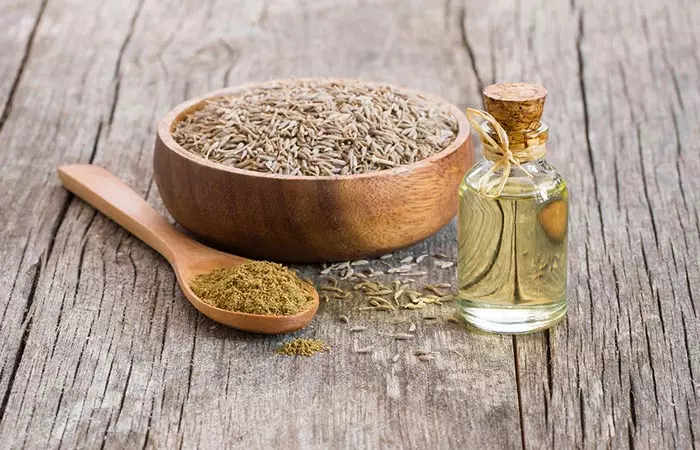
You can also find ground cumin seed powder. This can be used in making curries, stews, condiments, and sauces. You can also add it to yogurt, buttermilk, or green smoothies for a unique nutritional twist. If you have cumin seeds, infuse them in herbal teas like peppermint, chamomile, and ginger for a refreshing flavor.
If you don’t like to add the seeds or the powder to your food, there is another good option. Cumin is available in the form of capsules.
Cumin seed oil is another medically acclaimed alternative. You can try the one from black cumin (Nigella sativa).This essential oil is also sold as softgels.
Traditional practitioners recommend cumin water as an effective remedy for acute disorders. This drink can help you lose weight, boost immunity, and clean your gut.
Here’s how you make it.
How To Make Cumin Water/Jeera Water/Cumin Tea
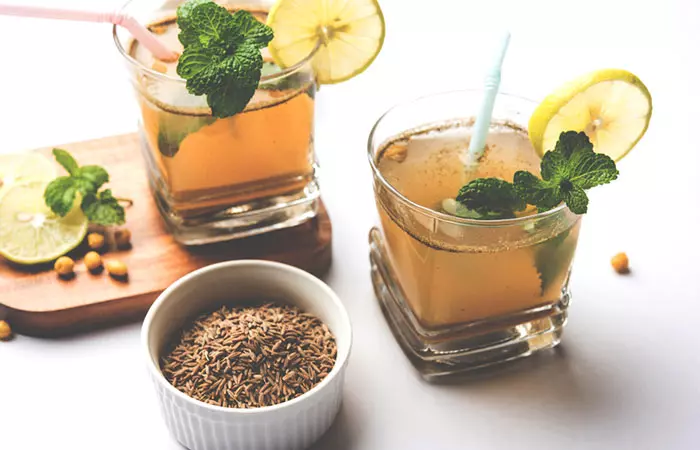
You can make cumin water by boiling or soaking the seeds.
Method 1: Boiling
- Add 1.5 liters of drinking water to a boiling pot.
- Add 2 teaspoons of cumin seeds to the water.
- Turn the heat on (high flame) and boil the contents for about 20 minutes.
- Turn off the heat and keep the pot aside to cool down.
- Strain the cumin water into serving cups or bottles.
- Your cumin water is ready!
Method 2: Soaking
- Add a teaspoon of cumin to a glass of drinking water.
- Leave the seeds overnight to soak.
- The next morning, discard the seeds and drink the water on an empty stomach.
You can replace bottles of regular water with cumin water. Try adding cinnamon or lime juice to this drink to make it tastier.
Despite all the efforts, if you still don’t like the taste of cumin, you can substitute it with caraway seeds. Ground coriander powder also works well in the place of cumin powder.
You can also try curry powder or taco seasoning mix if you run out of cumin powder.
Adding cumin to your dishes makes your meals healthier. But what happens when you have too much of it? Keep reading to learn more.
Does Cumin Have Any Side Effects Or Risks?
One of the most reported side effects of cumin seeds consumed in excess is drug interactions (1).
Research suggests that cumin extract can interfere with the activity of anticoagulants (blood thinners), antibiotics, and hypoglycemic (anti-diabetic) drugs (13), (1).
Active cumin compounds may interact with these drugs and cause hypoglycemia (sudden drop in blood sugar levels). They can also lead to longer bleeding time (13).
However, there are hardly any reports on the toxicity of cumin. It is presumed that this herb is safe for human consumption, even at high doses. Cumin oil can cause mild to moderate irritation. Read the safety sheet carefully before using (14).
Do not get confused with the studies on black cumin seeds. The green and black varieties might be metabolized differently.
It is best to consult your healthcare provider or a nutritionist to understand how cumin works.
Infographic: 5 Good Things Cumin Seeds Can Do For You
Cumin seeds appear humble and are often overlooked for their more convenient form—packaged powder. But ignoring cumin seeds in the kitchen can lead to a serious missing out on some of the amazing benefits they have to offer. Check out this infographic to know all the great things cumin seeds can do for your body and don’t forget to make prolific use of them!
Some thing wrong with infographic shortcode. please verify shortcode syntax
Cumin is an aromatic spice that is found in many African, Asian, and Middle Eastern cuisines. It imparts a savory and hearty flavoring and aroma to recipes. The natural anti-inflammatory and anti-allergic properties of this spice offer many health benefits. Cumin boosts immunity and relieves digestive problems. It may help manage diabetes and cholesterol levels too. Though cumin is available in powder or capsule form, cumin tea or water are the more popular ways of reaping its benefits. However, excessive consumption may result in low blood sugar levels or interference with blood clotting. If you have any specific health condition, consult your doctor before consuming cumin.
Frequently Asked Questions
Is fennel also called cumin?
No, fennel and cumin are two different plants. Cumin seeds are brownish in color whereas fennel seeds are greenish. Cumin seeds tastes mildly spicy and pungent whereas fennel seeds taste sweet.
Can I drink cumin water everyday?
You can drink cumin water everyday in moderate quantities as overconsumption of cumin water may lead to side effects such as low blood pressure, heavy menstrual bleeding and heartburn.
Can we add lemon in jeera water?
Yes, you can add lemon in jeera water.
Can I add honey in jeera water?
Yes, you can add honey in jeera water for enhancing its taste and digestive properties. However, that may break your fast if you are intermittent fasting.
Does jeera water cause heavy periods?
As jeera can have anticoagulant effects on the body, it may also cause heavy menstrual bleeding if consumed in excess.
What is the best way to store cumin seeds to maintain their freshness?
The best way to store cumin seeds is to maintain their freshness in an airtight container. Place it in a cool, dry place and away from sunlight. If you live in an extremely warm and humid area, you may also refrigerate or freeze the seeds to maintain their flavor.
Illustration: Cumin (Jeera): 5 Benefits, Uses, And Side Effects
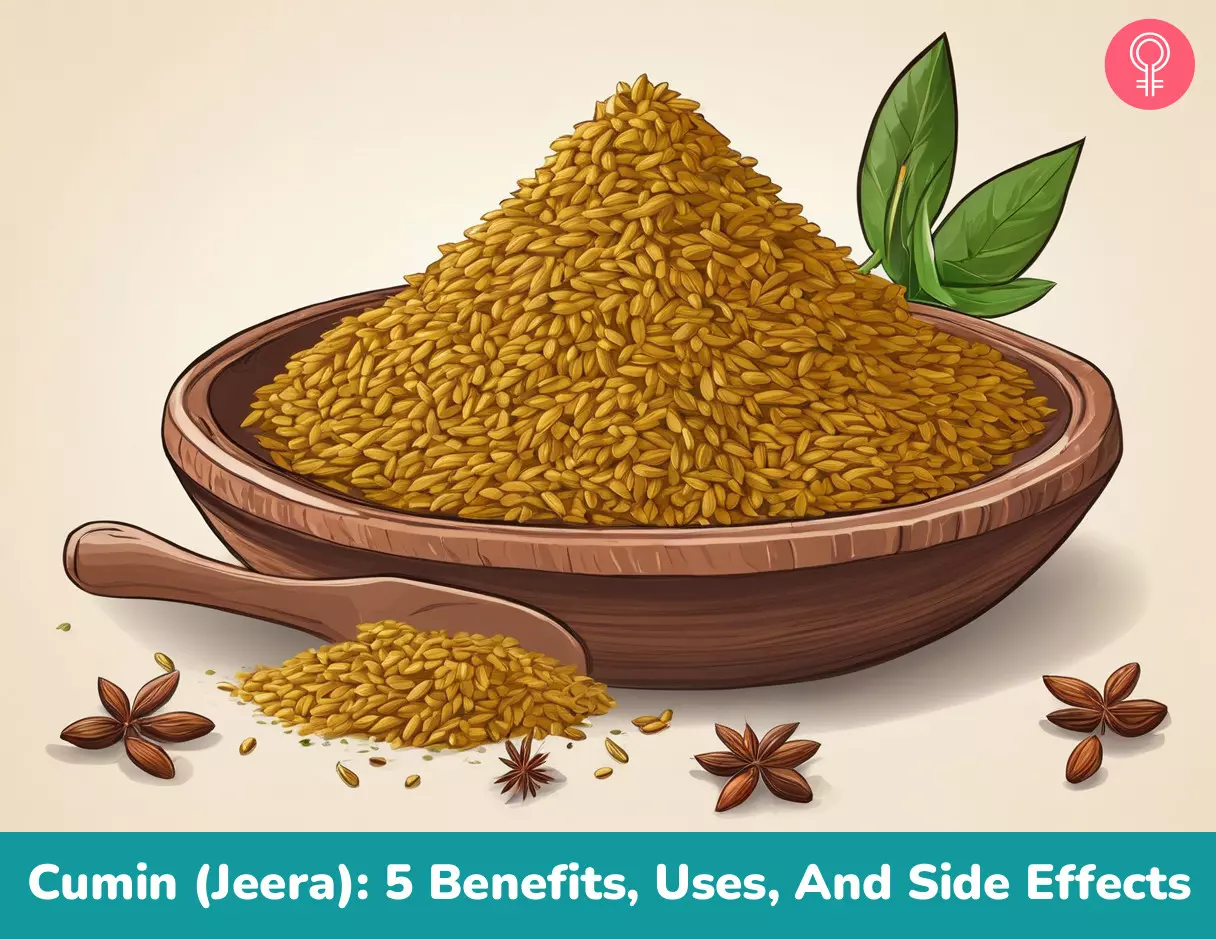
Image: Stable Diffusion/StyleCraze Design Team
Discover the surprising benefits and uses of cumin seeds that you never knew about! Watch this video to learn how cumin seeds help in digestion and weight loss and promote skin health.
Personal Experience: Source
StyleCraze's articles are interwoven with authentic personal narratives that provide depth and resonance to our content. Below are the sources of the personal accounts referenced in this article.
i. Slim Down Drink- Lose 5 Kgs in 15 days without exercisehttps://theindianbeautytrail.wordpress.com/2017/07/17/slim-down-drink-lose-5-kgs-in-15-days-without-exercise/
References
Articles on StyleCraze are backed by verified information from peer-reviewed and academic research papers, reputed organizations, research institutions, and medical associations to ensure accuracy and relevance. Read our editorial policy to learn more.
- “Cuminum cyminum and Carum carvi: An update” Pharmacognosy Review, US National Library of Medicine, National Institutes of Health.
- “Chemistry, technology, and nutraceutical functions…” Critical reviews in Food Science and Nutrition, US National Library of Medicine, National Institutes of Health.
- “Prevention and Treatment of Flatulence From a Traditional…” Iranian Red Crescent Medical Journal, US National Library of Medicine, National Institutes of Health.
- “Digestive stimulant action of spices : A myth or reality?” Review Article, Indian Journal of Medical Research, US National Library of Medicine, National Institutes of Health.
- “Cumin Extract for Symptom Control in Patients” Middle East Journal of Digestive Diseases, US National Library of Medicine, National Institutes of Health.
- “The Effect of Cumin cyminum L. Plus Lime Administration on Weight…” Iranian Red Crescent Medical Journal, US National Library of Medicine, National Institutes of Health.
- “Effect of cumin powder on body composition and…” Complementary Therapies in Clinical Practice, US National Library of Medicine, National Institutes of Health.
- “Anti-Inflammatory Effects of Cumin Essential Oil by Blocking…” Evidence-based Complementary and Alternative Medicine, US National Library of Medicine, National Institutes of Health.
- “THE ANTI-INFLAMMATORY DIET(AID): A CLINICIAN’S GUIDE” Whole Health for Pain and Suffering: An Integrative Approach, Office of Patient Centered Care & Cultural Transformation.
- “Effect of cumin extract on oxLDL, paraoxonase 1 activity…” International Journal of Health Sciences, US National Library of Medicine, National Institutes of Health.
- “Evaluation of the Blood-Glucose Reducing Effects of Aqueous…” Research Article, Tropical Journal of Pharmaceutical Research.
- “Evaluation the effect of 50 and 100 mg doses of Cuminum cyminum essential oil…” Journal of Traditional and Complementary Medicine, US National Library of Medicine, National Institutes of Health.
- “Ethiopian Traditional and Herbal Medications and…” ethnoMED, Harborview Medical Center, University of Washington.
- “CUMIN OIL” TOXNET, U.S. National Library of Medicine, U.S. Department of Health & Human Services.
Read full bio of Dr. Geeta Dharmatti
Read full bio of Swathi Handoo
Read full bio of Ravi Teja Tadimalla
Read full bio of Payal Karnik





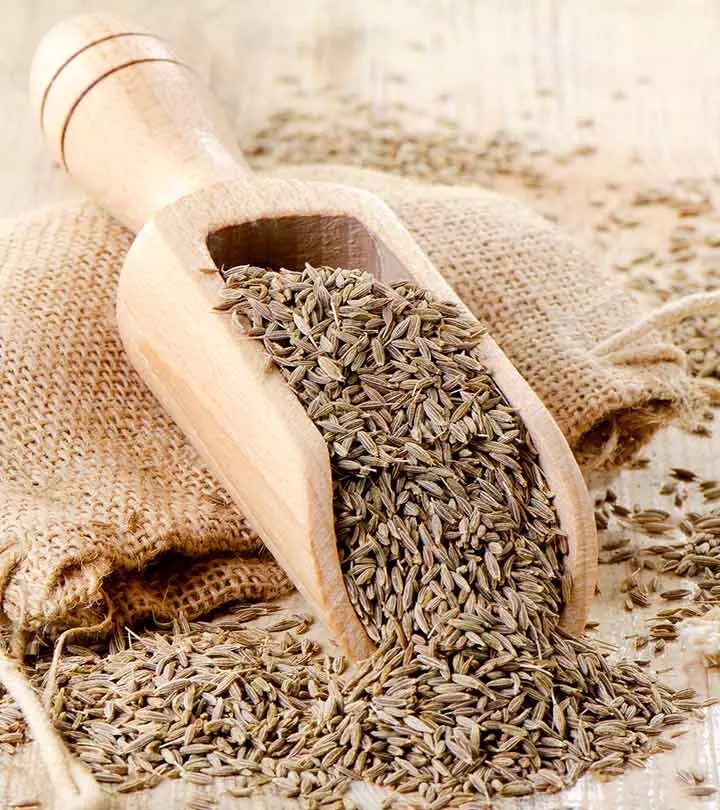
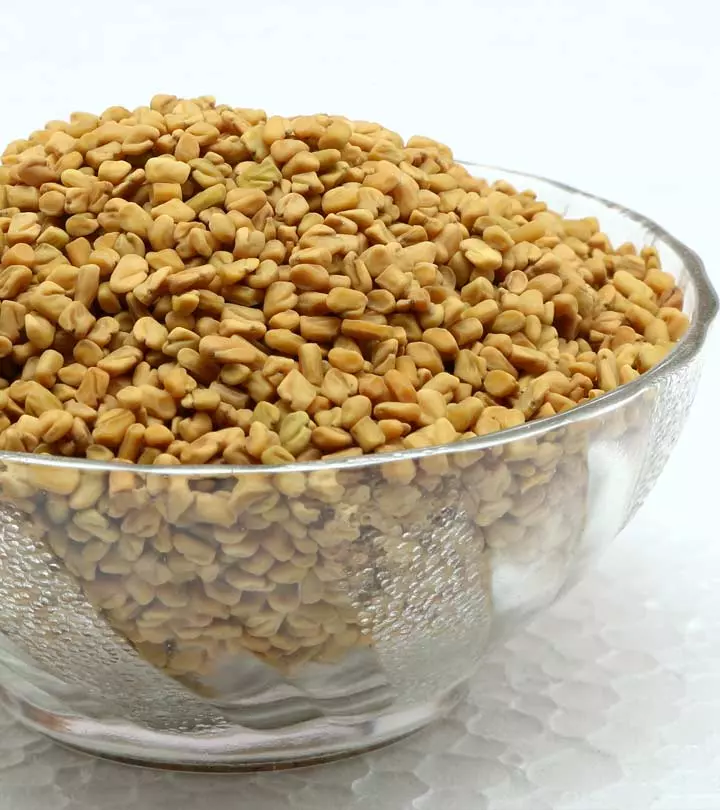
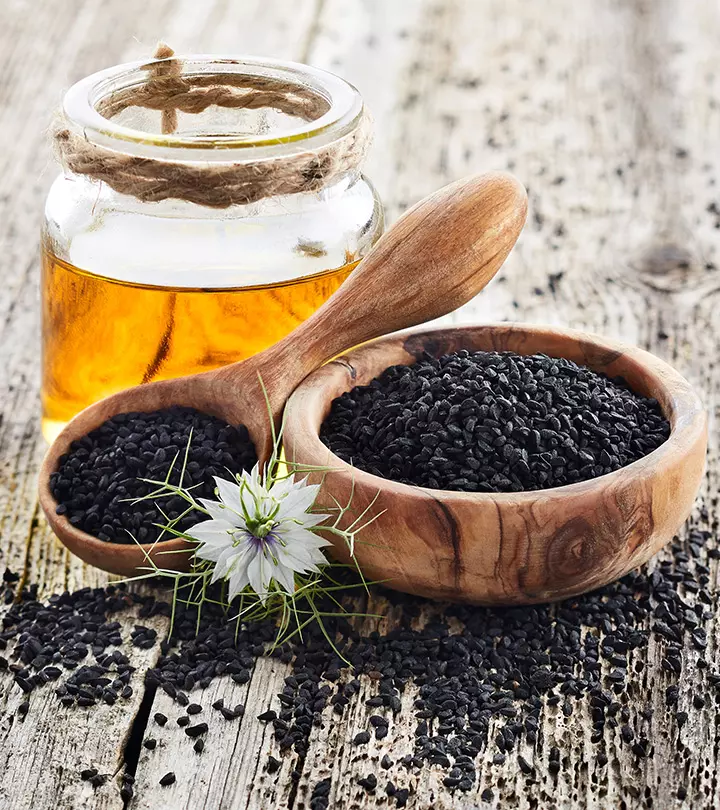
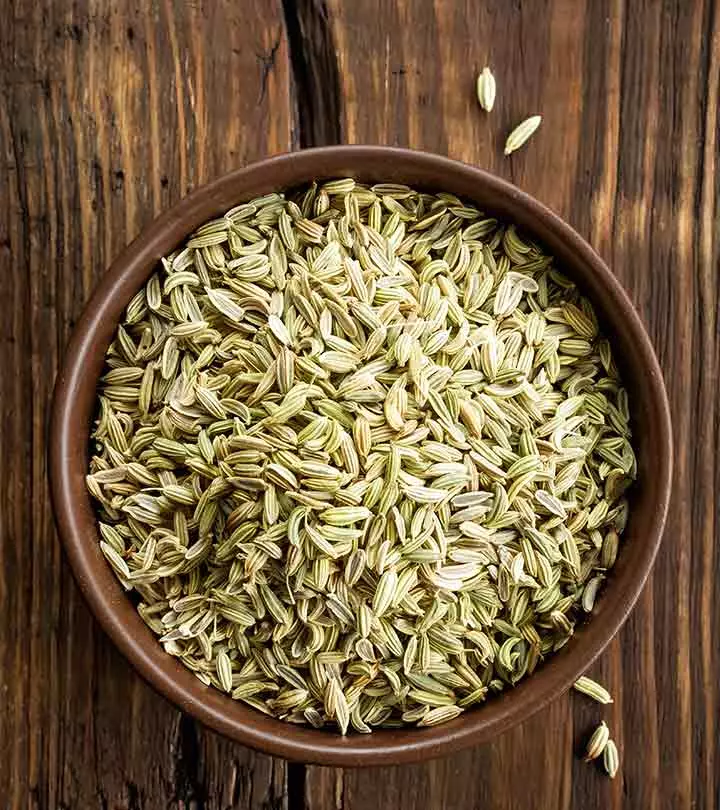
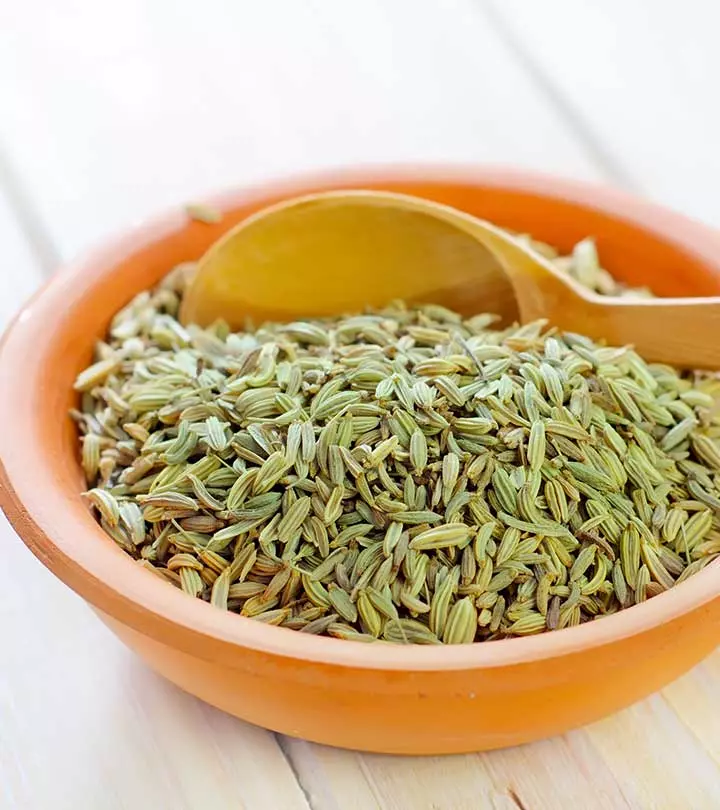
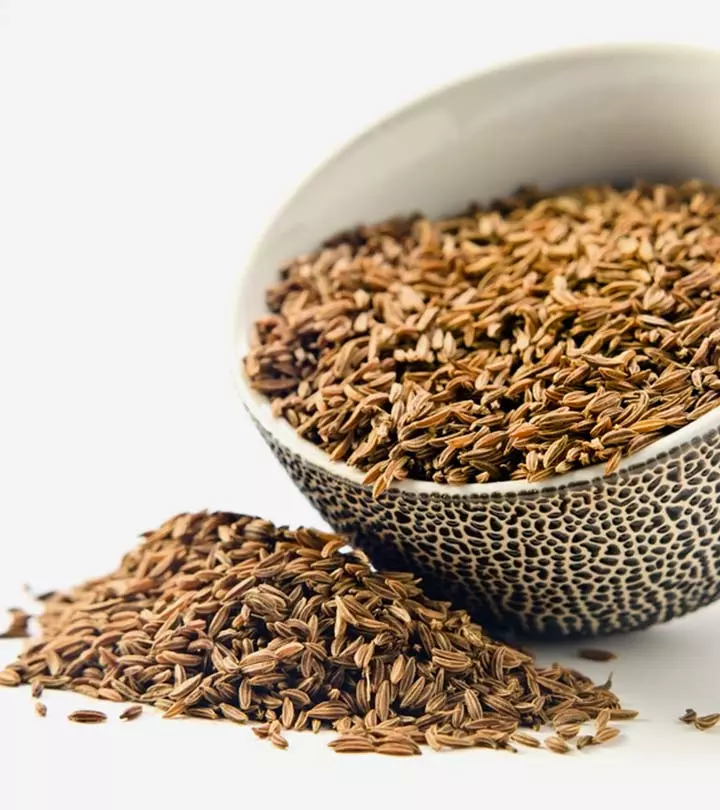
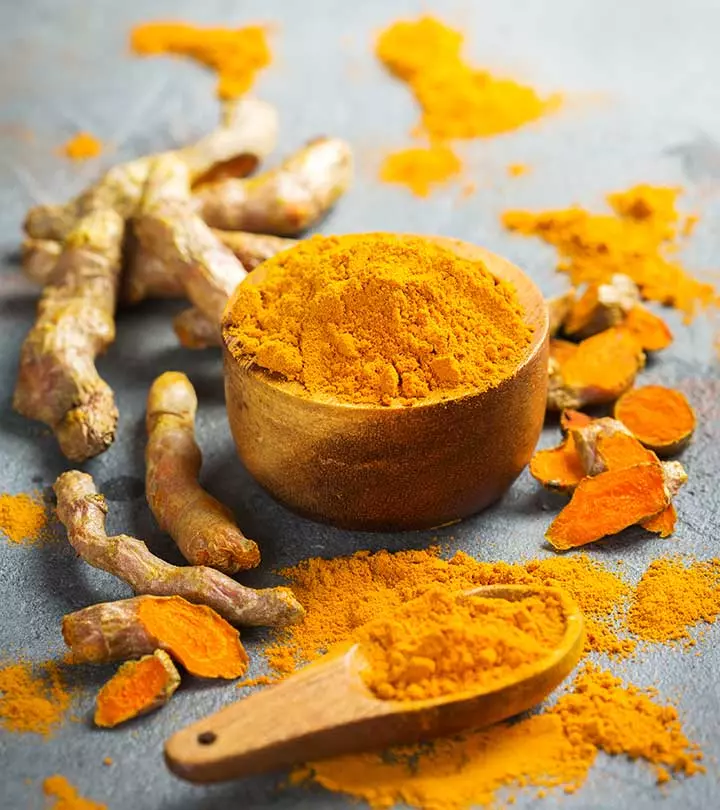
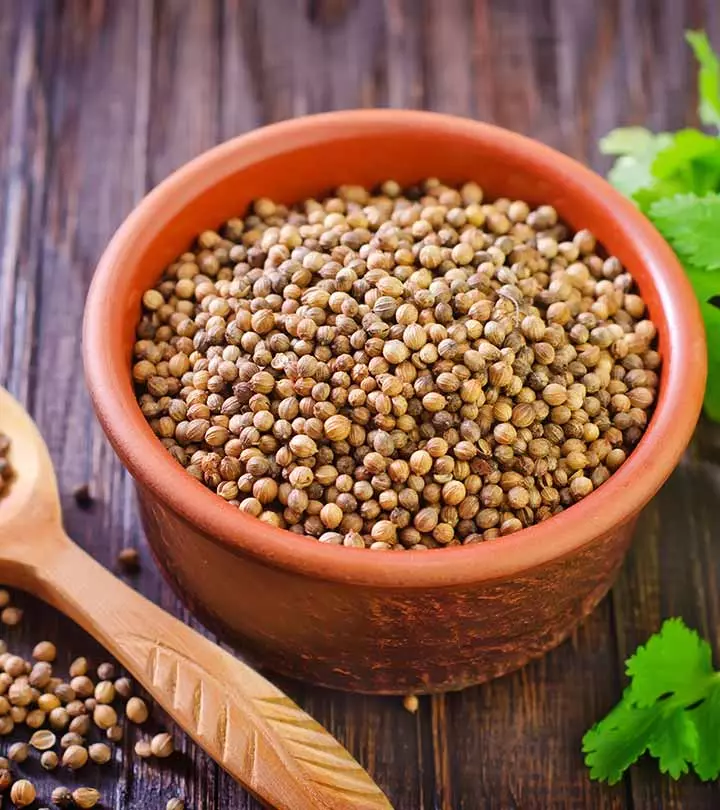
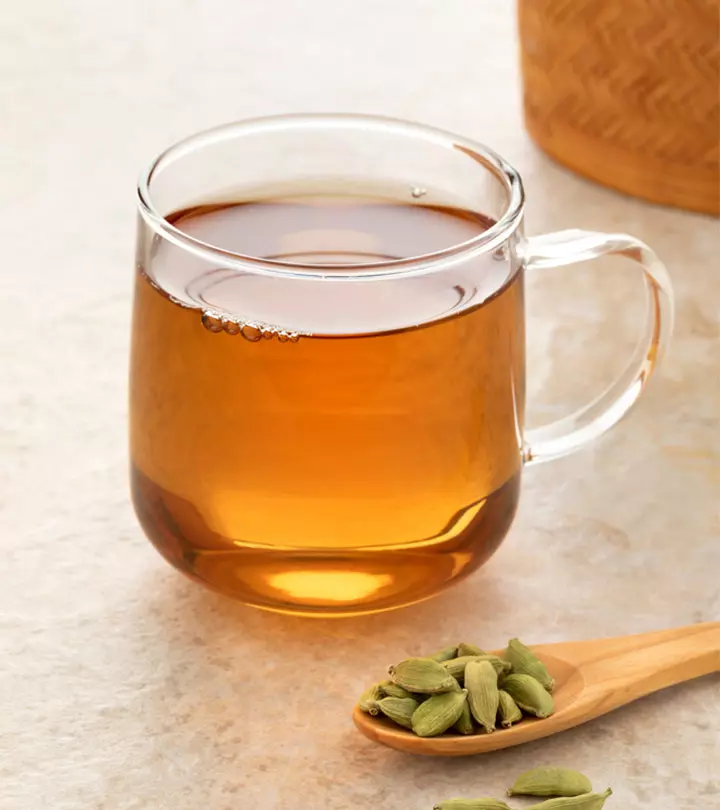
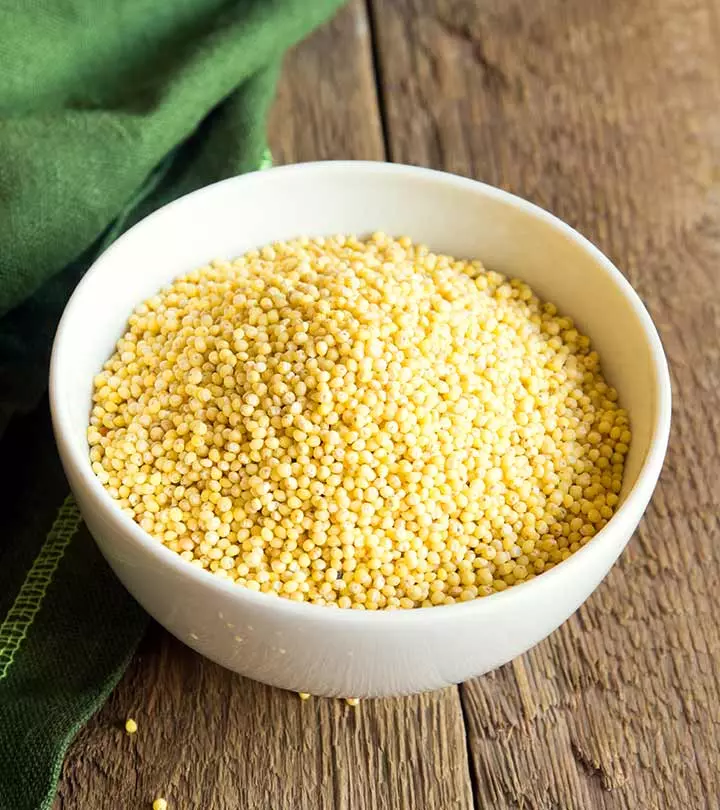
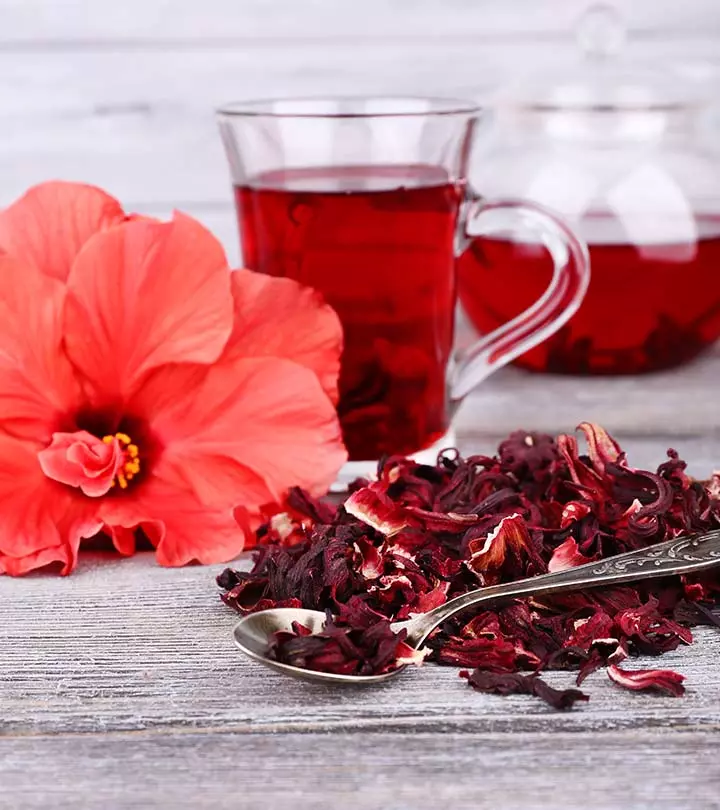
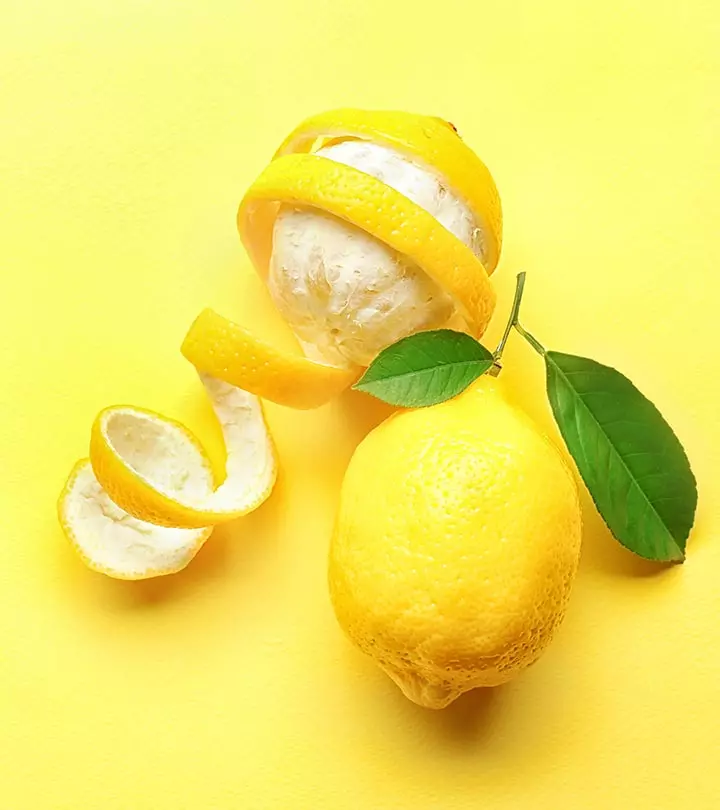
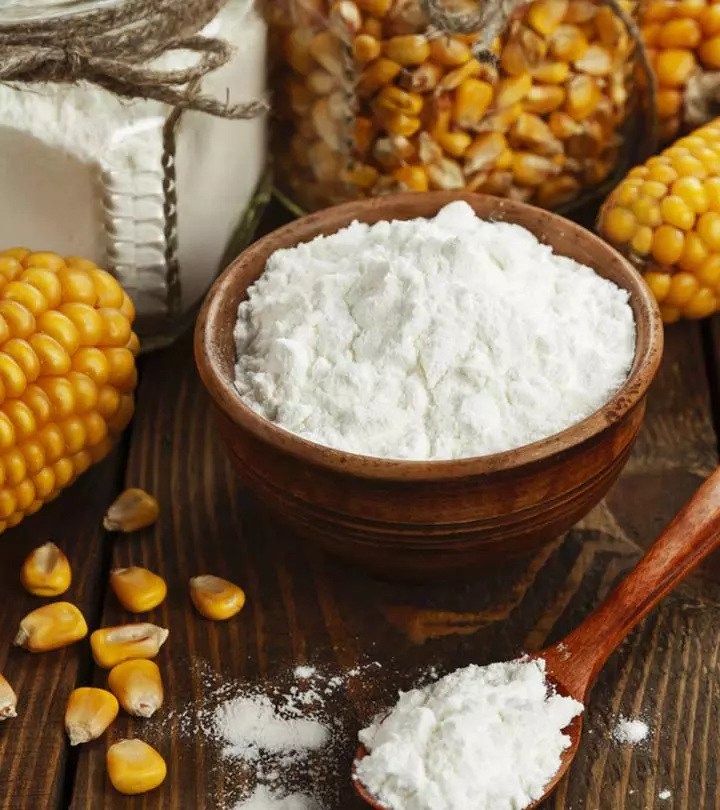
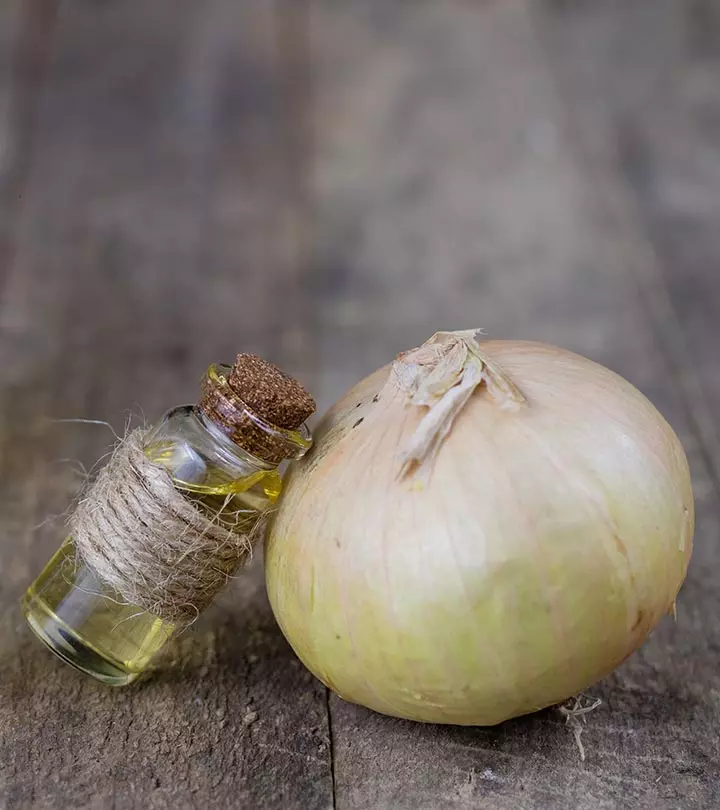
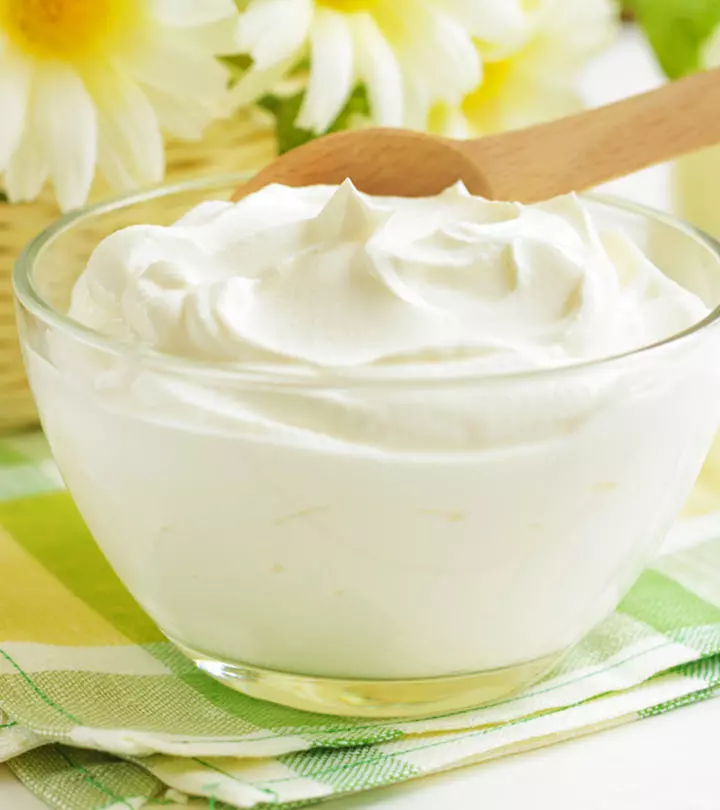



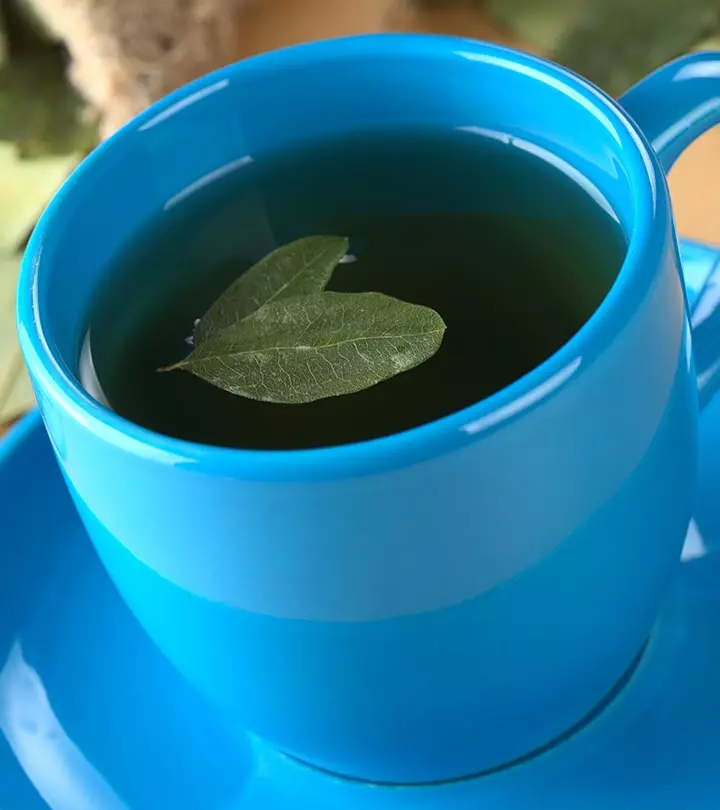
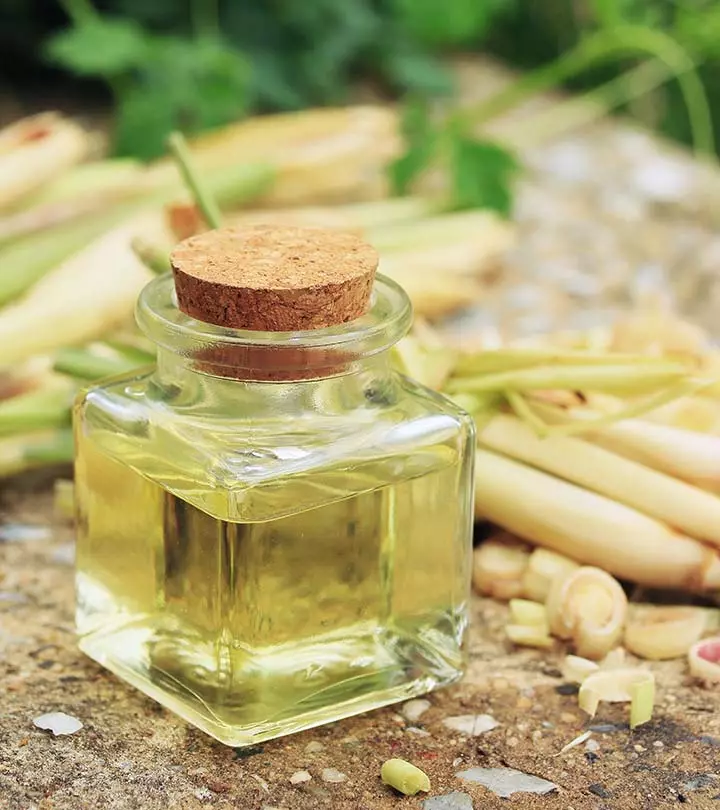
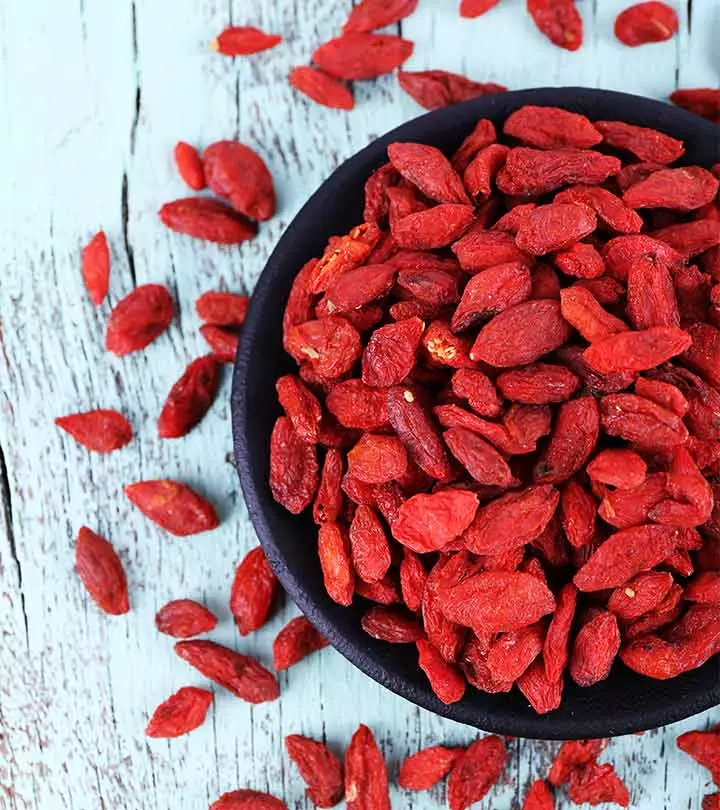
Community Experiences
Join the conversation and become a part of our empowering community! Share your stories, experiences, and insights to connect with other beauty, lifestyle, and health enthusiasts.